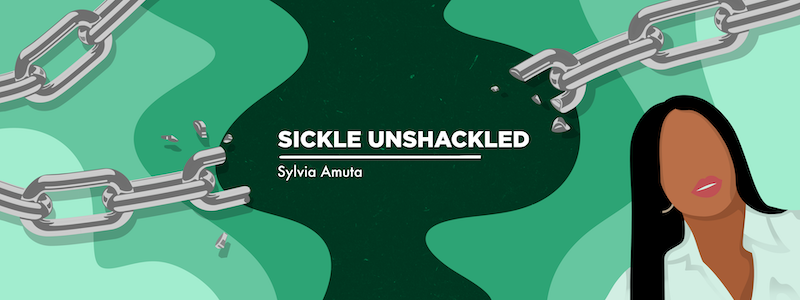How sickle cell awareness helps both patients and caregivers
Educating friends, family, and others in the community has been crucial for care
Written by |

Dealing with sickle cell disease poses unique challenges that affect not only patients but also their loved ones and caregivers. It is crucial to communicate fully about the disease with those around us.
As the primary caregiver for my adolescent cousin Ada, who has sickle cell disease and has been living with me here in Nigeria for a few years, I have personally witnessed the significant effect that spreading awareness and educating others in our community has had on both my cousin and me, as well as our extended support network.
Taking this approach provides family and friends with the understanding required to offer effective support to their loved ones. Understanding the factors that can cause a sickle cell crisis, like dehydration, extreme temperatures, and stress, helps loved ones create a safer environment for the patient.
Ada has managed to prevent numerous crises by informing others about the significance of staying hydrated and avoiding extreme temperatures. By gaining insight into the challenges and routine care of sickle cell disease, other people have become better equipped to provide empathetic and substantial assistance to us.
Having friends who can comprehend why Ada may abruptly feel fatigued or why she must steer clear of certain activities has been essential for her. It has diminished her sense of feeling alone and cultivated a supportive network around her. For example, Ada’s peers now make sure she gets water during sporting activities, and they encourage her to take breaks when necessary. Ada’s confidence has been lifted by these small acts of understanding, causing her to feel less self-conscious about her condition.
Ending the stigma
There is a notable stigma linked to long-term illnesses, particularly in regions where false information is widespread. By increasing other people’s knowledge about sickle cell, we can debunk misconceptions and lessen the negative perceptions linked to it, particularly by emphasizing that it isn’t contagious and by highlighting the importance of consistent medical care to normalize the condition and promote inclusive attitudes.
In our community, openly discussing sickle cell disease has resulted in increased acceptance and support for Ada as she faces her daily obstacles. Ada used to feel shy about her condition due to ignorant comments about her lanky frame, frequent hospitalizations, and the yellowish tinge in her eyes during the crisis recovery phase. But as more people began to understand her condition, the negative feelings decreased. This newfound awareness and sensitivity allowed Ada to feel more comfortable discussing her condition and less inclined to hide it or cry about it.
Prompting a more informed conversation about sickle cell disease has also helped me in my role as a caregiver by providing me with a group of knowledgeable people who recognize and assist with Ada’s needs.
One specific occasion highlighted the impact of this. Sometime last year, Ada had a significant pain crisis at school. Due to the educational sessions we had with her teachers and classmates, they were able to identify the warning signs of a crisis in advance. They got in touch with me right away and adhered to the emergency plan we had established, assuring that Ada received quick medical care. This fast reaction not only relieved her pain faster but also avoided more serious issues.
Discussing sickle cell disease openly has enabled us to create a supportive community. People are aware of what to look for and how to provide aid when necessary, indicating that there is no shortage of solutions and support available. In addition, talking more openly about sickle cell has allowed us to find people with similar experiences, which has been empowering and has fostered a feeling of solidarity. It cultivates a caring and understanding atmosphere, diminishes negative judgments, and provides others with the tools to respond swiftly in urgent circumstances.
This realization has been crucial for Ada and me, changing our journey and ensuring Ada gets the care and empathy she deserves.
Note: Sickle Cell Disease News is strictly a news and information website about the disease. It does not provide medical advice, diagnosis, or treatment. This content is not intended to be a substitute for professional medical advice, diagnosis, or treatment. Always seek the advice of your physician or other qualified health provider with any questions you may have regarding a medical condition. Never disregard professional medical advice or delay in seeking it because of something you have read on this website. The opinions expressed in this column are not those of Sickle Cell Disease News or its parent company, Bionews, and are intended to spark discussion about issues pertaining to sickle cell disease.







Leave a comment
Fill in the required fields to post. Your email address will not be published.